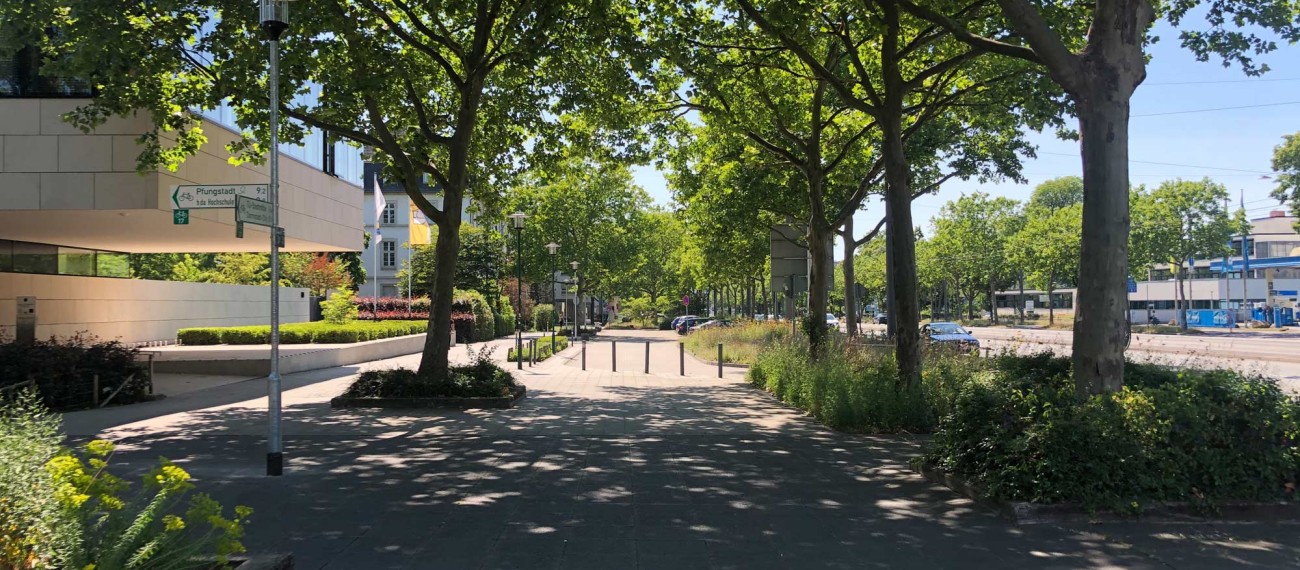| Project Title | Urban Design for the Promotion of Mental Health along Main Traffic Corridors: Case Studies from the Frankfurt Rhine-Main Metropolitan Region |
| Acronym | BOULEVARDS |
| Project Description |
Neurourbanism is an emerging interdisciplinary research field that explores how urban design influences the mental health of city dwellers. In this project, urban planners from TU Darmstadt collaborate with neuroscientists from Charité – Universitätsmedizin Berlin to study the psychological and physiological effects of urban environments on residents. Beyond measures such as traffic calming and urban greening, the project hypothesizes that street network design, mixed-use structures, building density, visual fields, architectural detailing, and the activation of ground-floor zones hold untapped potential for creating restorative urban movement spaces. Over a 36-month research program, the team conducts four user studies in boulevard settings across the Frankfurt Rhine-Main metropolitan region. Each study combines spatial analyses at macro and micro scales with psychophysiological data collection. This includes a novel integration of Space Syntax analyses of neighborhood structures with MRI-based measurements of the cerebral stress response in urban residents. The project aims to develop and empirically validate an initial model describing mental well-being through urban design factors, based on experimental and data-driven methods applied to a European metropolitan context. |
| Coordination | Urban Health Games Research Group, Faculty of Architecture, TU Darmstadt |
| Project Partners | Working Group on Neurourbanism, Charité – Universitätsmedizin Berlin |
| Project Duration | March 1, 2021 – February 28, 2024 |
| Funding | German Research Foundation (DFG) |
| Project Website | Zur Webseite |
Architektur

